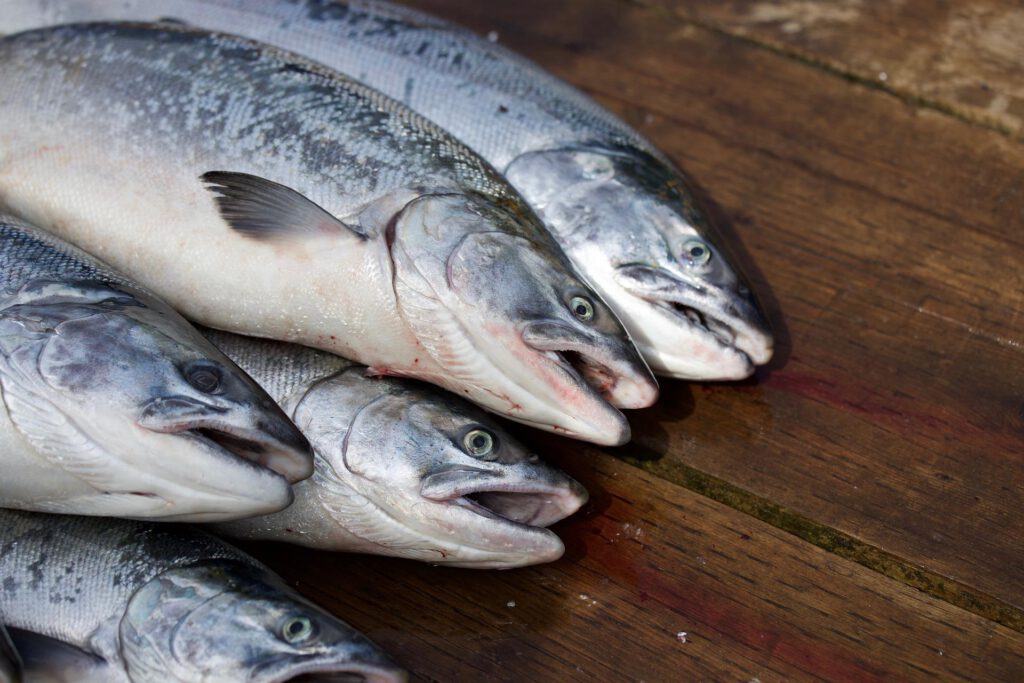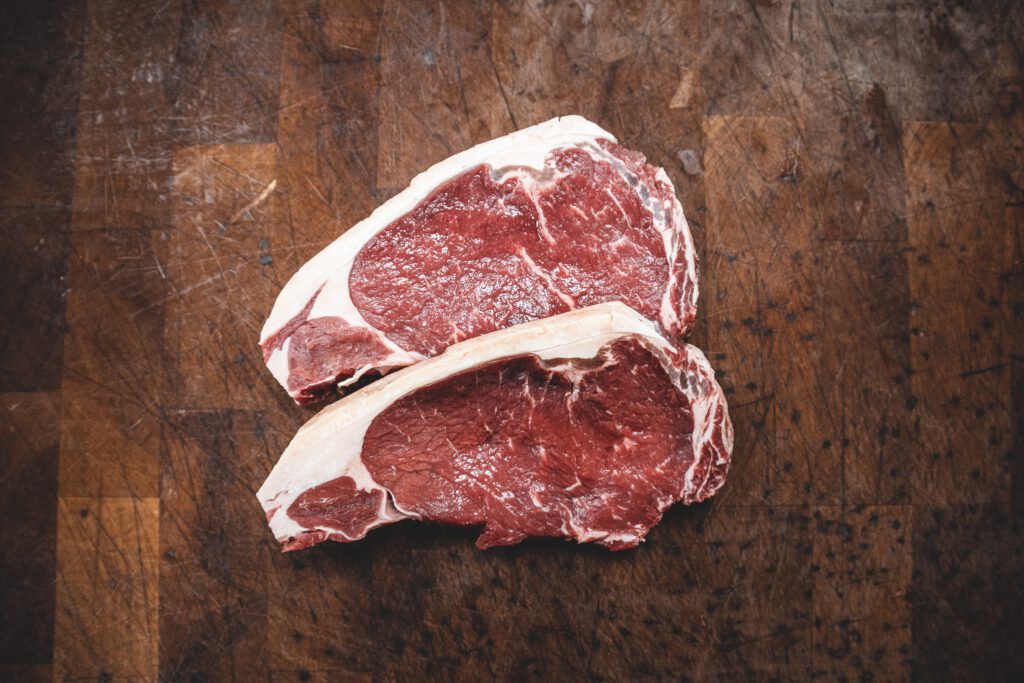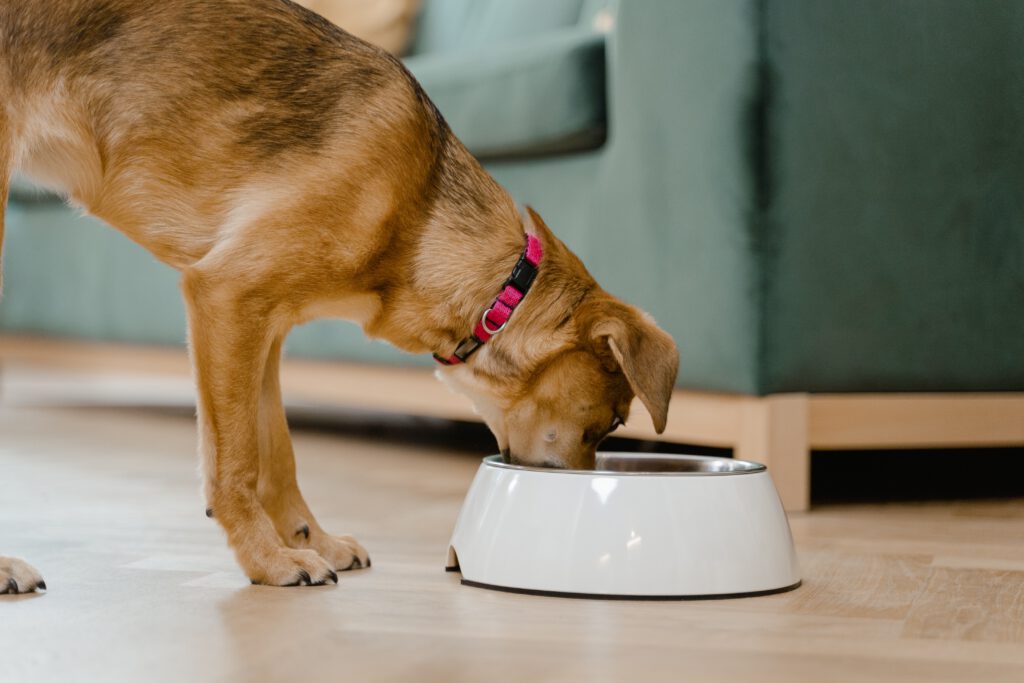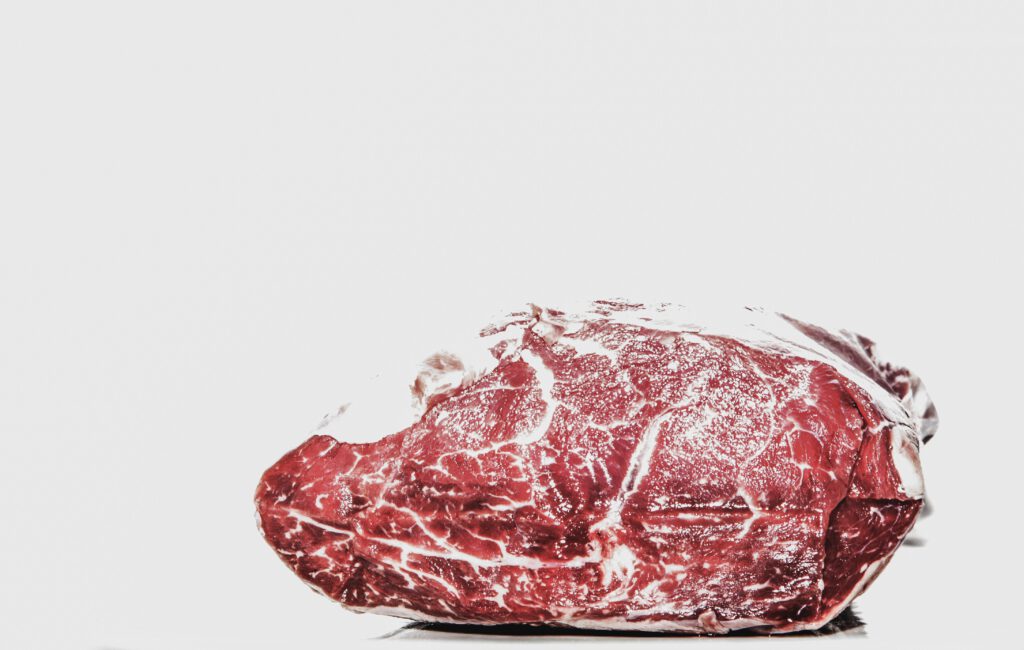
We’ve heard it many times before: protein is an essential part of every dog’s diet. But what is protein and why do dogs need it? And perhaps more importantly, how much does your dog actually need?
Why Do Dogs Need Protein?
Dog nutrition experts are always discussing optimal protein levels, but sometimes dog owners don’t understand why protein is so important in the first place. Let’s discuss the important roles that protein plays in your pup’s diet.
Amino Acids
When your dog digests his food, the protein is broken down into amino acids that build and repair tissues and cells in his body. There are 20 amino acids, but your dog’s body only supplies about half of these on its own. The protein in your dog’s food should deliver the other half.
Amino acids maintain the health of your dog’s hair, skin, nails, and bones. They also help build lean muscle and cartilage.
Energy
For energy, dogs rely primarily on protein, fats, and to a lesser extent, carbohydrates. If your pup is not getting enough energy from fat, it can convert protein to energy by breaking it down into ketone bodies.
Unlike the quick boost offered by carbohydrates, protein provides a slower, longer-lasting energy. If your dog seems lethargic, he might need some adjustments to the protein level in his diet.
How Much Protein Do Dogs Need?
The best way to determine your dog’s protein needs is by working out a plan with your veterinarian. However, there are a few criteria that generally determine how much protein your dog requires.
Breed
Not all breeds require the same level of protein in their diet. Some working breeds such as the Rottweiler and German Shepherd are highly active and bred for physical labor. These energetic dogs typically need more protein than a Pekingese or Cavalier King Charles Spaniel.
Age
In general, puppies need more protein and fat than adult dogs. Puppies rely on the amino acids in protein for muscle development and energy.
However, this does not mean that you can steadily decrease protein levels throughout your pup’s life. Older dogs need more protein than younger adults because they lose muscle mass as they age. Many veterinarians recommend a minimum of 25% protein for senior dogs.
Pregnancy
Female dogs who are pregnant or lactating exert plenty of energy as they nurture their pups. For this reason, there are some dog food formulas that are specially designed to support pregnancy and lactation. You can expect these foods to contain more protein than other formulas.

Best Protein Sources for Dogs
Throughout their evolution, dogs have found protein in many animals and plants. Let’s look at the protein sources that dogs find especially tasty and nutritious.
Beef
Just like humans, dogs can’t resist the smell of a sizzling steak or hamburger. Dogs are happy to eat the protein-packed goodness of beef, liver, kidney, heart, or any other meat and organ that comes from a cow.
Poultry
If your unleashed dog sees a chicken in the wild, his first instinct is probably to chase, kill and eat it! He knows how much delicious protein is available in poultry. Similar to beef, chicken organ meats are a great source of protein and vitamins.
Your dog can also eat eggs, although you should take care when handling and preparing eggs for your dog to minimize the risk of bacterial infection.
Fish
Dogs love the strong smell and taste of fish, so it’s no surprise that fish is the first ingredient in many high-quality dog foods. Fish are a fantastic way to deliver both protein and Omega-3 fatty acids in your dog’s diet.
Plant-Based Sources
For ethical or health reasons, some dog owners prefer to avoid buying dog food that contains products derived from animals. The good news is that protein can be found outside of animal meat. Plant-based protein sources include peas, chickpeas, soy, and lentils.
If you choose a vegan lifestyle for you dog, we recommend that you work with your veterinarian to establish a well-balanced diet for your pup.

FAQ
How do I know if my dog is getting enough protein?
Your dog needs all of the amino acids that protein delivers, so pay attention to your dog’s health to determine whether he is deficient in some or all of these amino acids. Signs of protein deficiency include unhealthy skin or hair, weight loss, and slow growth.
Can I mix multiple proteins in my dog’s food?
Yes, it is safe and normal to mix proteins in dog food. In fact, many dog food formulas contain ingredients derived from more than one animal species. For example, some foods contain chicken as the first ingredient and also fish or fish meal.
Can dogs have too much protein?
Some dog owners believe that their dogs are carnivores who can safely consume an unlimited amount of protein, but this is not correct. Even high-energy working dogs need a well-balanced diet. Too much protein can cause excessive weight gain.
Protein plays an important role, of course, and some dog food formulas even contain over 30% crude protein. But your pup also requires fat, calcium, phosphorous, vitamins, and other nutrients.

Conclusion
As a dog owner, you always want what’s best for your precious pup. A well-balanced diet with the right amount of protein will help keep your dog healthy and happy. Whether you are choosing kibble at the pet store or buying ingredients for home-made dog food, you should speak to your veterinarian or dog nutrition specialist to ensure that your dog is receiving just the right amount of protein.